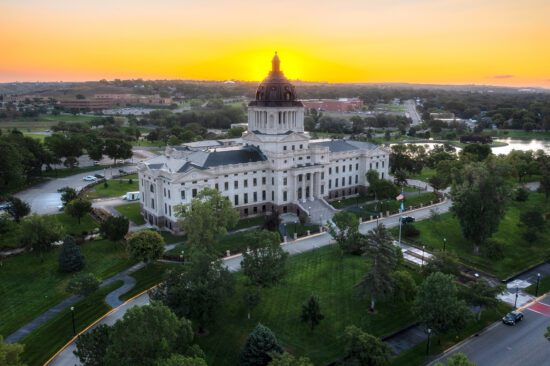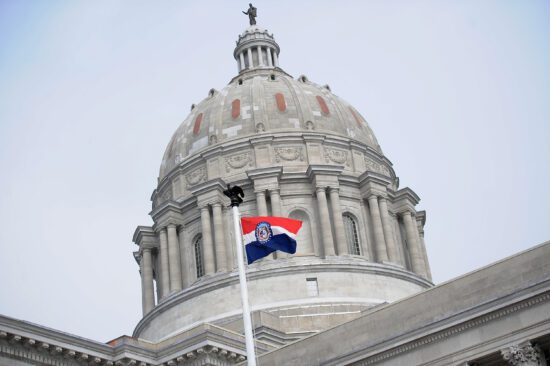What did you do on Saturday, July 19th? Catch a movie? Visit the beach? Host a barbecue?
Whatever you did, half a world away beneath that same summer sun thousands of Iraqi Christians were being purged from the city of Mosul and told never to return on pain of death. Carrying only the clothes on their backs, they fled from homes in which they and their families had dwelt since the times of the apostles.
Unfortunately this exodus is just one episode in a much larger tale of Christian depopulation in the Middle East. But it’s not the first, and it’s certainly not the last.
Things weren’t always this way. Contrary to popular myth, the Middle East has never been an “Islamic sea” stretching from Morocco to Pakistan. At the dawn of the twentieth century, a full twenty percentof the region was comprised of indigenous Christians – a community that had already been around for six hundred years when Muhammad’s warriors stormed out of Arabia and subjugated the African, Asian, Berber, and Semitic peoples who lived here.
Today, more than a thousand years later, Christians make up a mere five percent of the population and falling. The expansion of political Islam and its corollary, religious intolerance, has forced hundreds of thousands of Arabic-, Aramaic- and Syriac-speaking Christians to abandon their native lands just like a million Jews before them. Along the way, tens of thousands have been raped, maimed, and murdered under a naked desert sky — heartbreaking stories of injustice that will likely never be told.
Yet as Christianity nears extinction in the heart of its ancient homeland, we in the West do little to stop it. Beaches and barbeques loom much larger in our minds. Some of us pray for persecuted Christians and may even sign an internet petition or two. But that’s about it. We feel sad for them, wish them well, then return to our morning coffee.
My non-Christian friends are stunned. How can we be so indifferent? Aren’t these refugees our brothers and sisters? Don’t we feel some obligation to help them? Why is American Christianity so silent?
These are good questions, and honestly I don’t have a good answer.
At the end of the day, it’s unconscionable. Although the Bible calls us to love all men in the abstract, it also calls us (and much more specifically) to show special affection toward our Christian brothers and sisters. “If anyone has this world’s goods and sees his brother in need,” John wrote, “but closes his eyes to his need – how can God’s love reside in him?”
American Christians most assuredly have “this world’s goods.” We know that our brothers are in need. Yet we keep our eyes closed..
So how can we be filled with the love of Christ?
It’s a painful question, and one that will cause Christians to engage in all kinds of excuse-making. Here I’ve listed seven of the most common excuses with the aim of exposing their absurdity and providing a much-needed biblical corrective.
We are busy.
Western Christians lead comfortable lives. Even the poorest among us has tremendous comparative wealth, and few have experienced anything remotely akin to persecution. Softened by prosperity, distracted by entertainment, and consumed by ambition, we ignore the plight of those who live less magical lives. After all, we are very busy.
This nonchalance flies in the face of every model of Christianity shown in scripture. The Apostle Paul directly admonishes us to, “Remember the prisoners as though you were in prison with them, and the mistreated as though you yourselves were suffering bodily,” packed schedules notwithstanding.
We are far away.
We Westerners inhabit a world that is quite alien to that of Iraq, Syria, and Egypt. Separated by unintelligible languages, disparate daily realities, and vast tracts of land and sea, we do not — simply cannot — identify with life under Islamic persecution. Though we may read of Mosul in the news, words will never convey what it’s like to hear armed men surround our house or a hooded jihadi demand that we recant or be executed. It’s just not our world.
That being said, there has never been another time in history better suited to discovering and understanding the plight of the worldwide church. Between television, radio, and digital media, we can connect with people in faraway places like never before. Prudence and brotherly love demands that we use these tools to advance the well-being of the church and provide for its needs.
We are divided culturally.
Unlike Judaism, which bears aspects of both a faith and an ethnicity, Christianity is a creed that encompasses a vast diversity of nations and tongues. Although we all follow the same Jesus and pursue his kingdom, we live our physical lives in particular ethnic communities in which we act out our earthly story. These communities cultivate some measure of loyalty within us, a natural sentiment that inevitably colors our loftier brotherhood in Christ. So although aspirationally we are members of one body, practically we are anchored in our present reality.
God never intended mankind to be monolithic; said another way, He enjoys diversity. Not only that, He expects us to remain respectful of the geographic, political, and cultural context in which we are born. However, we as Christians must continually recall the transnational nature of the church and seek to integrate ourselves with that spiritual, albeit invisible, global community while still maintaining our more mundane particular existence. Paul calls us to, “Pray at all times in the Spirit with every prayer and request, and stay alert in this with all perseverance and intercession for all the saints.”
We are divided theologically.
Christians excel at drawing lines between themselves based on theology, personality, and personal preference. Divided into numerous and competing blocs, we sometimes look upon Christian neighbors as hopelessly mistaken in their views of the divine. Upon meeting an Orthodox Christian from the East, many American Christians might express doubt that he or she is participating in the same essential faith as they are. They may even go so far as to deny Oriental Orthodoxy the normative status of true Christianity and thereby remove any obligation to assist “so-called” brothers facing persecution.
It’s a bold claim to be sure. Theological boundaries are important, and there is no denying that Eastern Orthodoxy (especially among non-Chalcedonian traditions) departs in significant ways from most brands of Western Christianity. That being said, we should remain open and affectionate to all who name Christ as Savior. Though we may differ on points of ecclesiology and soteriology, we must humbly accept the idea that these believers are still our brothers and sisters and seek their welfare just as much as we do the welfare of our American neighbors. Christ instructed to allow the tares to grow alongside us until the harvest and, at the very least, we should express solidarity with these believers in order to bring glory to the name of Christ in the eyes of the world.
We esteem suffering.
Our faith has built into it a tolerance of, and even a love for, suffering in the name of Jesus. Our Lord himself told us to expect such suffering and, in fact, called us to rejoice because of it. Unthinking Christians in the West may use such references to justify a sort of religious fatalism, or to imply that Eastern Christians should simply “have faith” and “bear the burden” with joy.
Easy to say from the comfort of your armchair. While it is true that the Bible bestows special honor upon one who is persecuted for Christ’s sake, it does not command us to refrain from all rational attempts at relief. Paul himself escaped from the clutches of would-be assassins on numerous occasions, as did Jesus when almost pushed from the edge of a cliff. While observing the predicament of our brethren under tyranny, we who sit in safety must recall the scriptural command to, “Carry one another’s burdens; in this way you will fulfill the law of Christ.”
We don’t know what to do.
This is perhaps the most common (and seemingly plausible) excuse for not assisting persecuted believers. We see their plight, we share their pain, and we desire to do something to help them – but we just don’t know how. Without any government position, public voice, or significant financial resources, we doubt that we possess any conceivable means of transforming the situation.
Fortunately, unlike Paul and Silas, we in the West enjoy the benefits of living under a democracy and, as the demos, we retain the authority to demand that our government act (a demand likely to be carried out owing to an overwhelmingly Christian majority and the tacit support of many non-Christians in this regard). What exactly we ask our government to do is a real question that we must carefully discuss, but we must at least start discussing it. There are many options available, ranging from big to small, but whatever we do, it should be something tangible that will provide real relief for people on the ground.
An important pledge was signed several months back that included some tangible provisions (none of which, I’m afraid, were terribly comprehensive), but to date the pledge seems to have sunk into the ocean without much of a ripple. Someone needs to take leadership on this issue and start pushing it, harder, at the highest levels of government.
We don’t want another crusade.
Memories of war in Iraq and Afghanistan are still visceral for most Americans. We all know friends and family who served, and many of us recall those who paid the ultimate price. Large numbers of Americans, Christians included, have been jaded by what happened during those years and feel that all of it – the blood, the treasure, the time – was spent for nothing. Thus, the prospect of doing something tangible to help persecuted Christians – especially something that may involve force of arms or the provision of resources needed to bolster such arms – seems like a fool’s errand. The public discourse that has developed over the past decade labels such activity as nothing more than a bloody crusade.
Recognizing the very real fatigue of war, I would nevertheless argue that armed intervention aimed at protecting Christians – to the extent such intervention is possible and deemed by the American people to be the best course of action – bears important distinctions from a crusade. Taken in its proper definition, a crusade is a war instigated for religious ends. Taken in its historical definition, however – that is, in the pejorative sense that the word is now understood – a crusade is a religiously-motivated war focused on controlling holy sites and establishing religious hegemony over a territory. In other words, a crusade aims to exercise power over place while what we need today is to provide protection over people. This is not a call to arms, but a necessary clarification on how protecting Christians should not be understood as religious motivation for bellicose action.
There are vast differences between what occurred in the Middle Ages under the European popes and kings and what Western countries can do today for persecuted Christians in lands still mired in tyranny.
We have the resources, the government access, and the biblical mandate to assist brethren in need.
What we, the Western church, don’t have is a good excuse for inaction.









